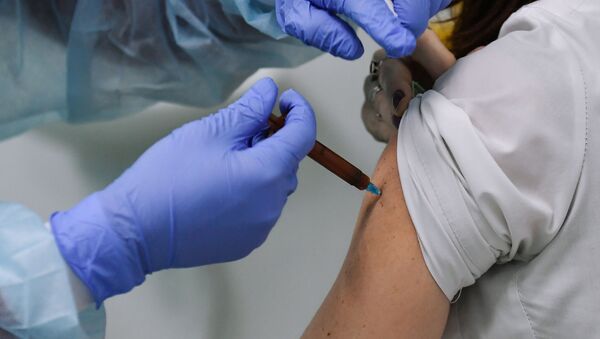"Immunity is formed a month after the first vaccination ... Thus, quarantine is not needed, but protection from external infection is necessary - wearing a mask after the first and second vaccinations is highly desirable and necessary in order not to become infected at this time. The body is not yet protected at this time," Ryzhikov said at a press conference.
Coronavirus vaccination with the EpiVacCorona vaccine, developed by Russia's Vector research centre, will be seasonal, but the exact pace is yet to be determined, according to the official.
'"I believe vaccination will be seasonal, but we are yet to study the frequency of ... re-vaccination. After two injections, re-vaccination will be needed in at least six or maybe 10 months. As for the level of immunity stability after re-vaccination, we hope re-vaccination will be needed once every three years," Alexander Ryzhikov said at a press conference.
The scientist also noted that the immunity formed after contracting COVID-19 is not stable and only protects a person during five to seven months, while the immunity formed after vaccination is more stable.
According to the official, the vaccination with EpiVacCorona is likely to start in 2021.
"I think in 2021 it will be available in almost all the regions across Russia ... The vaccine will go into general use on December 10, and mass vaccination will start next year," Ryzhikov said at a press conference, stressing that vaccination will be free.
At the same time, he pointed out that the vaccine can be stored in a regular fridge for up to two years and still remain efficient.
"Vector's vaccine is stored easily and safely at temperatures ranging from +2 to +8 degrees [Fahrenheit] and transported at the same temperatures ... The vaccine retains its immunogenic characteristics for up to two years ... A regular non-specialized fridge is enough, the vaccine can be stored there for up to two years," Alexander Ryzhikov said at a press conference.
The peptide-based EpiVacCorona became Russia's second registered vaccine against COVID-19 on 13 October. In August, the Sputnik V vaccine, developed by Russia's Gamaleya research institute and based on the human adenovirus, became the first registered coronavirus vaccine in the world.


